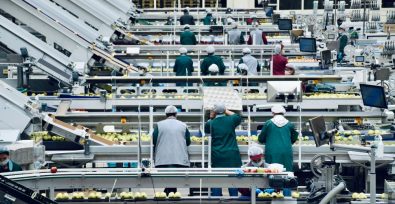In an era defined by heightened awareness of environmental and social concerns, including forced labor, the corporate landscape is undergoing a profound transformation towards accountability and sustainability – whether corporations want to or not. The recent provisional agreement reached by the Council of the EU and European Parliament on the Corporate Sustainability Due Diligence Directive (CSDDD) underscores the reality that corporate responsibility is no longer a mere option for select purpose-driven companies but is a fast-approaching reality for all businesses.
The evolution of CSR
An increasing number of companies are hopping on the corporate social responsibility (CSR) bandwagon but old methods, like box ticking and proclamations of strong values, will no longer do.
The origins of CSR can be traced back to the 20th century, when globalization reshaped supply chains, distancing brands from direct oversight of production, leading to diminished accountability. However, mounting consumer and investor pressure prompted companies to adopt commitments aimed at improving working conditions, ensuring compliance, and fostering sustainability throughout their supply chains, thus laying the foundation for current CSR initiatives.
How the CSDDD would help promote accountability
The proposed CSDDD heralds a new era of accountability, compelling large companies to scrutinize their supply chains for forced labor and environmental damage – or face fines for non-compliance. Every aspect of production, from factory workers to last-mile suppliers, falls under the purview of the CSDDD mandate and businesses will be required to report on actual and potential risks and how they would mitigate them.
The CSDDD extends corporate responsibility across the entire EU which would be groundbreaking.
With the imminent rollout of regulation like the CSDDD, Christopher van Bergen for Reuters has some pointers for businesses:
- Fully map your supply chain: Thoroughly mapping the supply chain, beyond Tier 1 suppliers, is crucial for compliance. Leveraging technology and partnering with specialists can facilitate this process and enhance transparency.
- Evaluate practices: Assess existing practices to ensure alignment with regulatory standards. Encourage open communication within the ecosystem to identify and address potential risks.
- Assess market and company: Analyze products and company structures to identify opportunities for enhancing transparency and storytelling. Embrace changes in organization structure to adapt to evolving regulatory landscapes.
Van Bergen believes “…embracing CSR isn’t just a regulatory obligation; it’s a pathway to resilience, innovation, and success in an era where corporate consciousness and responsibility is undeniably vital.”
One more hurdle to go
However, the path to the CSDDD adoption is not quite clear.
The E.U. decision has been postponed due to reservations by Germany and Italy. Germany’s Free Democrats (FDP) have been particularly vocal in their opposition, arguing that the law would impose excessive bureaucracy on businesses. So we’ve got an urgent request: join us in calling on the German government to vote yes on the CSDDD!







Freedom United is interested in hearing from our community and welcomes relevant, informed comments, advice, and insights that advance the conversation around our campaigns and advocacy. We value inclusivity and respect within our community. To be approved, your comments should be civil.
There is another approach which FU could consider.Most large suppliers need to provide certified evidence of quality compliance of their products and services. Most use the internationally recognised ISO 9001:2015. Perhaps considering trying to modify ISO9001 to include supply chain integrity would be an apppropriate alternative. The ISO has 150 member countries signed up at Government level. Independent auditing of compliance is a requirement of certification at company level.